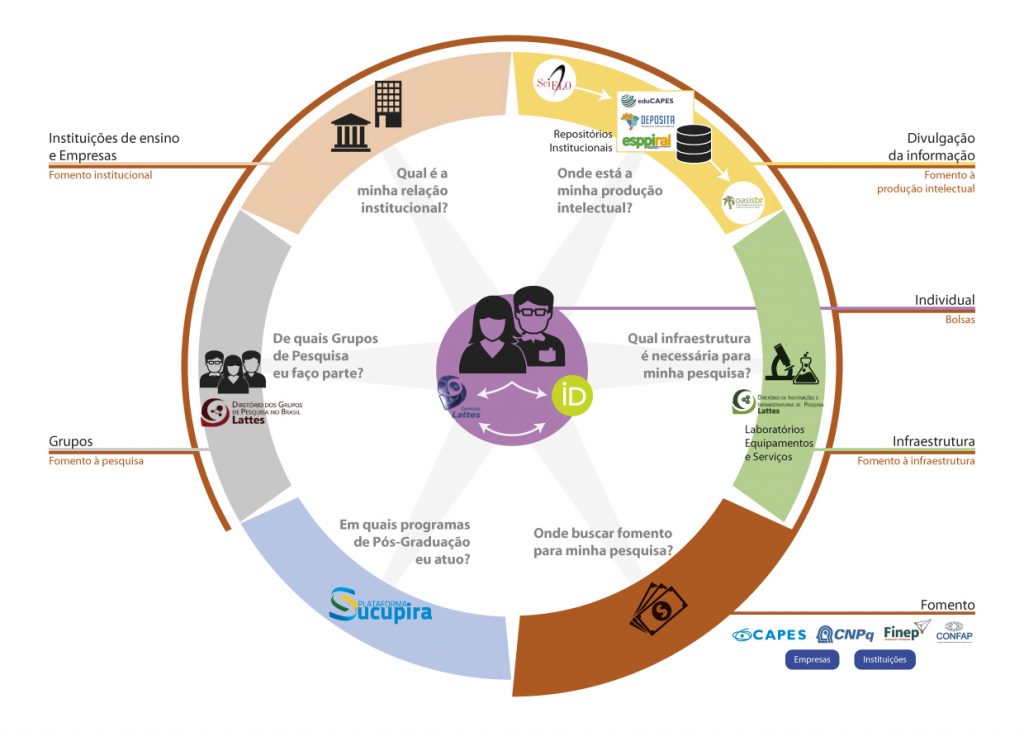Presenting ORCID to Brazilian Graduate Students
Based on the motto “Don’t fill in your ORCID record, optimise processes with it” master’s students and PhD candidates of the Graduate Programme in Information Science (PPGCI) at São Paulo State University (UNESP) learnt about how to use ORCID in their research career.
The PPGCI at UNESP organises an annual forum for students and alumni. This forum offers the possibility to learn more about current research topics, as well as includes workshops about transversal aspects or meta-research — for instance, the use of ORCID iDs.
The workshop consisted of two-hour sessions on two consecutive days. The first day was devoted to getting to know the ORCID platform and the ORCID record, and the second day focused on the role of the information professional in the context of ORCID.
The participants got to know the functionalities of ORCID and the use their ORCID iDs throughout the research process. It was also essential to contextualize ORCID in the Brazilian research ecosystem, i.e. its integration with other existing platforms such as CV Lattes or Sucupira platform ―a platform for the collection and evaluation of information on Brazilian research. Besides, ORCID was presented within the framework of CONECTI Brazil, a consortium whose objectives include the adoption of ORCID as a persistent identifier of researchers.
Brazilian research ecosystem: people, institutions, infrastructure and funding.

Translation (from bottom left to bottom right): Sucupira – In which Graduate Programmes do I work?; Groups (– What research groups do I be part of?; Research institutions and enterprises – What is my institutional relationship?; Information dissemination – Where is my intellectual production? Institutional repositories; Individual (in the middle); Insfrastructure - What infrastructure is needed for my research? Laboratories, equipment and services; Funding - Where to seek funding for my research?
Source: Consortium CONECTI Brasil https://www.conectibrasil.org/ (Website available only in Portuguese)
CV Lattes vs. ORCID
All researchers and postgraduates in Brazil are familiar with the CV Lattes, as they are required to keep their records up to date. The Lattes CV is a very complete registry that collects information on all types of scientific, artistic and technical production, both academic and extra-academic, as well as information on areas of action, working groups, training and collaboration. However, updating this record is rather tedious and time-consuming, as it lacks automated processes.
Many graduate students consider that they have to manually "fill in" their ORCID record. Therefore, the workshop showed the options of automatic update or with little manual work that ORCID offers.
Therefore, three ways of keeping the ORCID record up to date were addressed:
- Autoupdate option through DataCite and Crossref.
- Automatic metadata harvest from other identifiers (DOI, ArXiV ID or PubMed ID).
- .bib file upload.
This last way is especially important, as many academic journals in Brazil (and Latin America, in general) do not have DOI identifiers. However, most Library and Information Science students are familiar with the use of reference management software. Therefore, they can export references in .bib and easily insert them into the ORCID Record.
Participants also connected their ORCID iD with the Lattes CV. Shortly, the plan is the availability of data transfer between these two platforms.
ORCID iD displayed in CV Lattes

What can we do as library and information scientists?
Graduates in Information Science have diverse professional opportunities, apart from the academic career. These include work in university and research libraries, in research support areas and scientific infrastructure.
The second part of the workshop focused on depicting how to include ORCID as part of professional tasks as library and information scientists. These tasks include, among others, training on ORCIDs and other persistent identifiers, integration of ORCIDs into institutional repositories, journals, and other information systems, use of ORCID iDs to enrich library metadata and catalogues, participation in the development of new integrations.
ORCID APIs and tools such as OAuth 2.0 Playground (Google Developers) to test data transfer between ORCID and other applications were also presented.
As a conclusion, the workshop was fruitful. The participants were able to deepen their understanding of the "world of ORCID and identifiers". And, most importantly, they will certainly use ORCID throughout the research process and show others how to use it.
The Workshop’s slides (in Portuguese) are available in Zenodo.
This blog post was written by our FREYA Ambassador Paloma Marín Arraiza. Paloma holds a degree in Physics and a master’s degree in Information and Scientific Communication from the University of Granada (Spain) and is currently a PhD Candidate in Information Science at São Paulo State University (Brazil). At present, she works at the TU Wien Bibliothek (Austria) as an Information Manager for Persistent Identifiers. She is the main contact person of ORCID Austria and is responsible for the activities of the consortium, as well as its communication and engagement strategies. Paloma is also involved in the establishment of a DOI service in Austria. She regularly participates in sessions to promote the use of PIDs and show why they are helpful for proper research data management.